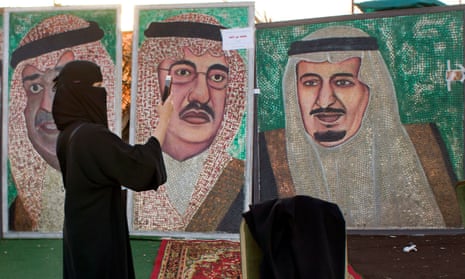Saudi Arabia is systematically using anti-terror laws to justify torture, suppress all dissent and imprison human rights defenders, the UN has concluded following a five-day official inspection of the country at the invitation of the government.
The report presents a damning assessment of Saudi’s human rights record, and is made more powerful by the fact that it is the product of an official Saudi invitation.
The UN’s special rapporteur on anti-terrorism, the British QC Ben Emmerson, met senior Saudi politicians, judges, police and prosecutors during his trip.
“Those who peacefully exercise their right to freedom of expression are systematically persecuted in Saudi Arabia,” the report found. “Many languish in prison for years. Others have been executed after blatant miscarriages of justice.
“A culture of impunity prevails for public officials who are guilty of acts of torture and other ill-treatment. Peaceful avenues for redress of grievances are foreclosed by the use of repressive measures to silence civil society.”
The inquiry was completed before the most recent wave of arrests of human rights activists in recent weeks.
Saudi Arabia issued its first driving licences for women this week, ahead of 24 June when it is due to end the world’s only ban on female drivers.
Crown Prince Mohammed bin Salman has positioned himself as a reformer, determined to return the country to “moderate Islam” and transform its moribund, oil-dependent economy.
However, the historic shift has been overshadowed by the detention last month of many of the most prominent figures who have campaigned against the driving ban for years, and in some cases decades. Eight have now been released, but nine are still being held.
“Under Crown Prince Mohammed bin Salman, Saudi Arabia is undergoing the most ruthless crackdown on political dissent that the country has experienced in decades,” Emmerson told the Guardian. “Just as the Kingdom is handing out the first driving licences for women, it is locking up the very people who campaigned for this modest reform.”
“Reports that Saudi Arabia is liberalising are completely wide of the mark,” Emmerson said. “The last two years have seen an unprecedented concentration of executive power in the monarchy across every sphere of public life.”
Emmerson said it was “a matter of shame for the UN that it allowed Saudi onto the UN human rights council (HRC)” in 2016, and warned investors that there was no independent judiciary in the country, making any overseas investment vulnerable to expropriation.
“The judiciary has now been brought entirely under the control of the king, and lacks any semblance of independence from the executive,” he said. “Put simply, there is no separation of powers in Saudi Arabia, no freedom of expression, no free press, no effective trade unions and no functioning civil society.”
In his report, published by the UN on Wednesday, Emmerson writes that he was repeatedly denied access to many prisons or named arrested human rights activists that he said he wished to interview confidentially. Riyadh said the individuals could not be made available or did not fall within Emmerson’s remit.
The report accepts that Saudi Arabia is facing terrorist threats.
But the report states the “special rapporteur received well documented reports of the use of torture and ill-treatment by law enforcement officials against individuals accused of having committed acts of terrorism and the use of coerced confessions as sole or decisive evidence in their conviction”. The methods used allegedly include electric shocks, sleep deprivation, being held incommunicado for prolonged periods of solitary detention, and beatings to the head, face, jaw, and feet.
Between 2009 and 2015 more than 3,000 allegations of torture were formally recorded, the report says. “Despite this, the special rapporteur is not aware of a single official prosecuted for committing an act of torture or other ill-treatment. The theoretical protections enshrined in law appear illusory in practice,” it adds.
The report says that while the Kingdom has ratified several human rights treaties, is a current member of the United Nations HRC, and has a large human rights department within the Ministry of Islamic Affairs, Saudi officials often argue that sharia, or divine law, its culture and the Islamic character of the state were impediments to full implementation of international human rights standards.
The 2014 Terror Law, the report finds, had a broad definition of terrorist crimes, which encompassed any act “directly or indirectly intended to disturb the public order of the state, or to destabilise the security of society, or the stability of the state, or to expose its national unity to danger, or to suspend the basic law of governance or some of its articles, or to insult the reputation of the state or its standing, or to inflict damage upon one of its public utilities or its natural resources.”
The report said new anti-terror definitions had been widened further still.
Among his recommendations, Emmerson called for the establishment of an independent national security and due process review mechanism to review all crimes allegedly committed by speech or writing. The aim would be to free those wrongfully imprisoned for terrorism offences when in fact they had been exercising their right to free speech, or peaceful assembly.
He also called for prompt investigation of all allegations of torture and ill-treatment and other serious human rights violations committed under the counter-terrorism and national security framework.
Saudi officials are understood to have asserted that the allegations of torture were not substantiated by fact. Riyadh also insists that its anti-terror laws meet national and international human rights standards. It said there was no inconsistency between sharia law as interpreted in Saudi Arabia, and the international human rights standards, and that freedom of expression is allowed.
